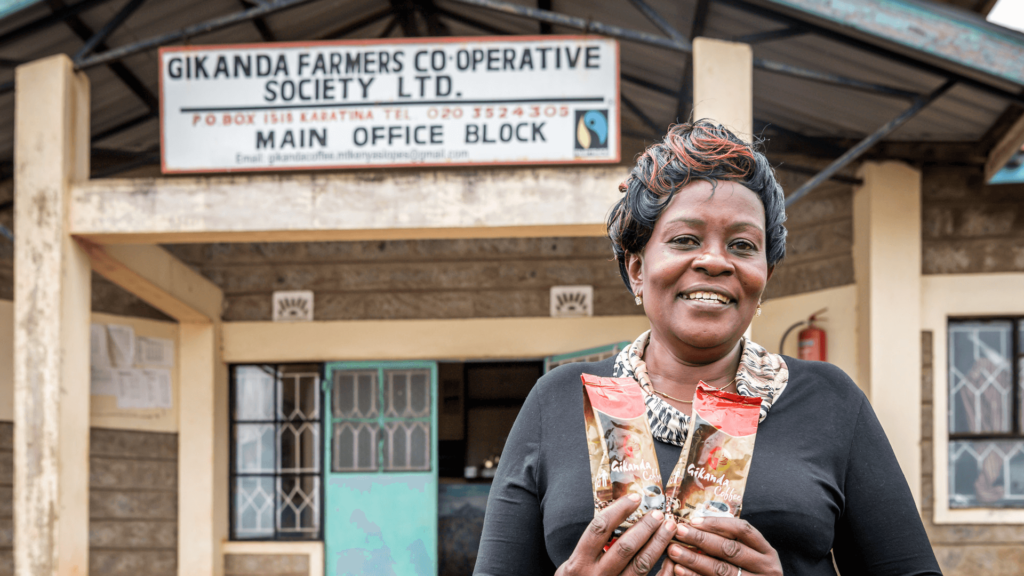Gikanda Farmers Co-operative Society (Gikanda) is located in the Mathira Division of Mathira East District in the Central Province of Kenya.
About Gikanda
Gikanda is around 120km north of Nairobi. It is situated on the slopes of Mount Kenya and benefits from adequate rainfall and red volcanic soils. The co-operative, which was established in 1996, now has 3,152 members, 33% of whom are women, who grow coffee on 312 hectares of land.
Before the training on proper use of pesticides, I used to pick 500 coffee beans per bush, now I pick 1,000 – 1,500 beans.
Rose Githoni, Gikanda member
Gikanda aspires to be a pace setter in quality coffee production in Kenya and to high payment rates to improve the standard of living for its members. It also promotes good agricultural practices through capacity building and extension services. The organisation also plans to access affordable farm inputs to improve on its quality for top premium prices.
The farmers are small-scale farmers with low income levels and coffee is their main source of income. The community within this area is mostly made up of the Kikuyu people; they also grow other food crops like maize, beans, yams and bananas. The main economic challenge with cash crops (coffee) is unpredictable coffee prices, unpredictable weather patterns and the high cost of farm inputs. Gikanda can produce 1 to 2 million kilograms of coffee cherries each year, depending on climatic conditions, disease and other factors.
Gikanda’s coffee sales have been increasing year on year which means the Fairtrade Premium they receive has also increased. The premium funded projects have engaged and had a positive impact on the whole community, not just co-operative members. All the materials used in the projects are purchased ocally, thus strengthening the economy of local businesses. Another benefit of Fairtrade is that farmers are assured of stable prices for their coffee and are therefore in a position to employ more people on their farms in busy periods such as harvest.
Benefits of Fairtrade
Members of Gikanda, as well as the neighbouring community, have benefitted through a number of Fairtrade Premium funded projects. In addition to the premiums, farmers can access the Fairtrade Technical Assistance Fund (TAF), which provides finance to co-operatives for technical support to develop their businesses and improve their compliance with Fairtrade Standards.
Education
- The local primary school (Thenge-ini primary school) was renovated in 2009.
- The school fees were paid for all orphans in the community.
- School books were purchased for Gatundu Secondary school.
Infrastructure
- A health centre for the local people was built with the help of the Fairtrade Premium.
- The corrugated iron sheets, which are used as roofs on the co-operatives’ buildings, were wearing out so it was decided to paint all the roofs using a weather resistant paint to avoid further damage.
- The co-operatives’ coffee drying beds were refurbished using Premium funds.
